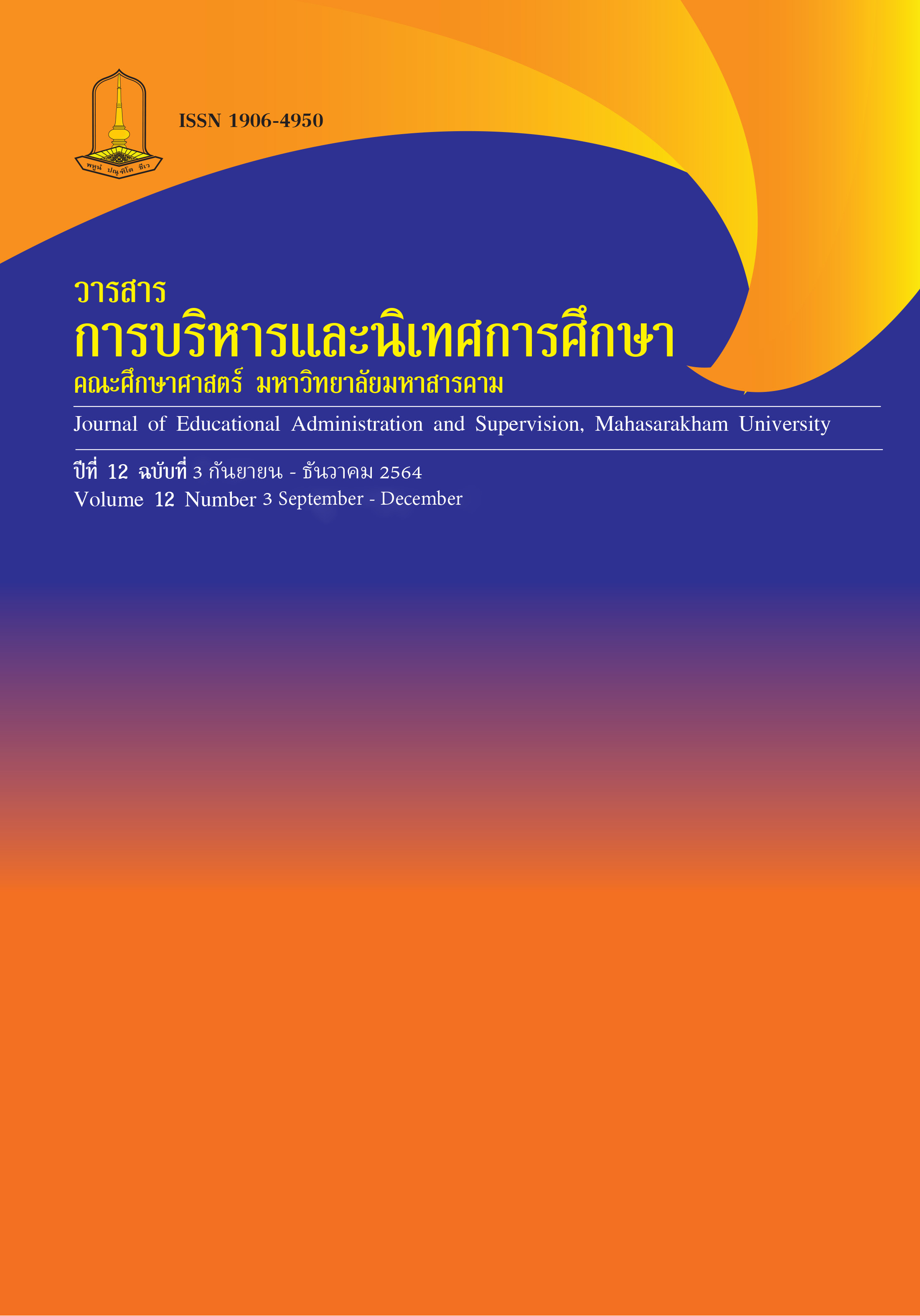ความต้องการภาษาอังกฤษของนักศึกษาด้านการเกษตร
Main Article Content
บทคัดย่อ
การวิจัยครั้งนี้มีวัตถุประสงค์เพื่อศึกษาความต้องการการใช้ภาษาอังกฤษของนักศึกษาสาขาการเกษตรในเขตพื้นที่จังหวัด แพร่ พะเยาและเชียงราย จำนวน 254 คน โดยใช้แบบสอบถาม ข้อมูลได้รับการวิเคราะห์เพื่อหาค่าเฉลี่ย มีผลการวิจัยดังนี้คือ นักศึกษามีปัญหาด้านทักษะการฟัง และการพูดและมีความต้องการพัฒนาทักษะการพูดและการฟัง มีความต้องการรูปแบบการอบรมเสริมเป็นแบบการอบรมเชิงปฏิบัติการซึ่งจัดในช่วงวันหยุดเสาร์-อาทิตย์ ครั้งละ 3 ชั่วโมง รวมจำนวน 20 ชั่วโมงตลอดหลักสูตร การอบรมควรจัดเป็นกลุ่ม ๆ ละ 21-25 คน มีเนื้อหาตั้งแต่ระดับพื้นฐานถึงระดับกลางโดยมีเนื้อหาที่ต้องการอบรมมากที่สุดดังนี้ด้านภาษาอังกฤษที่ใช้ในชีวิตประจำวันต้องการฝึกด้านสนทนาและคำศัพท์ในชีวิตประจำวัน ด้านธุรกิจเกษตร คือการแนะนำตนเอง และการเจรจาต่อรอง และ ด้านหมวดเกษตร คือการอ่านสลากยา/ปุ๋ย และคำศัพท์หมวดเครื่องมือ ผลจากการวิจัยจะนำไปสู่การพัฒนาหลักสูตรอบรมภาษาอังกฤษให้กับกลุ่มนักศึกษาสาขาการเกษตรต่อไป เพื่อมุ่งเน้นในการพัฒนาศักยภาพ ด้านภาษาอังกฤษของนักศึกษาด้านการเกษตรผู้เป็นฐานรากของสังคมและเศรษฐกิจของประเทศไทย
Downloads
Article Details
เอกสารอ้างอิง
กระทรวงศึกษาธิการ. (7 ธันวาคม 2556). ยุทธศาสตร์สอนภาษาอังกฤษ, ข่าวกระทรวงศึกษาธิการ สืบค้นจาก http://www.moe.go.th/moe/th/news/detail.php?News ID=350038
Key=news_act
กองแก้ว จุฬาภรณ์ (2016). ภาษาอังกฤษสำหรับธุรกิจเพื่อนิสิตชั้นปีที่ 4 สาขาการบัญชี: การศึกษาความ ต้องการเพื่อนำไปออกแบบการเรียนการสอน (A BUSINESS ENGLISH COURSE FOR
THE 4TH YEAR STUDENTS OF ACCOUNTANCY: FROM NEEDS TO COURSE DESIGN). Srinakharinwirot Research and Development. Journal of Humanities and Social Sciences, 8(15), 43-57.
จรัสพงศ์ คลังกรณ์. (2018). แนวทางเพื่อสร้างความเข้าใจให้กับประชาชนในเรื่องโมเดลไทยแลนด์ 4.0.
วารสารสถาบันเทคโนโลยีแห่งสุวรรณภูมิ, 4(1), 80-87.
ชัชรีย์ บุนนาค. (2018, November), ปัญหาการเรียนการสอนภาษาอังกฤษในประเทศไทยและข้อเสนอแนะด้านยุทธศาสตร์การพัฒนาการเรียนการสอนภาษาอังกฤษ ปี 2564-2568. In รายงานการประชุม Graduate School Conference (Vol. 2, No. 1, pp. 235-241).
พัชรี อิ่มศรี (2019). การเรียนรู้ภาษาอังกฤษนอกห้องเรียนผ่านกระบวนการวิชาการรับใช้สังคม. Walailak
Procedia, (9), 1-7.
ยิง ลี่, & สุมาลี ชิโนกุล. (2015), การวิเคราะห์ความต้องการจำเป็นในการเรียนทักษะการฟังและการพูดภาษาอังกฤษของนักศึกษาที่เรียนภาษาอังกฤษเป็นภาษาต่างประเทศสาขาบริหารธุรกิจ มหา วิทยาลัยอัสสัมชัญ. Online Journal of Education, 10(1), 88-102.
นงสมร พงษ์พานิช. (2011). การศึกษาปัญหาของการพูดภาษาอังกฤษในการสื่อสารด้วยวาจาของนิสิตคณะวิทยาการจัดการ มหาวิทยาลัยเกษตรศาสตร์ วิทยาเขตศรีราชา. ตุลาคม 2550 ถึง กันยายน 2551. Humanities Journal, 18(1), 85-97.
ยุพาภรณ์ พิริยศิลป์ (2014). ความต้องการทางด้านภาษาอังกฤษของอุตสาหกรรมการท่องเที่ยวในเขต จังหวัดขอนแก่น. Journal of Thai Hospitality and Tourism, 9(2), 16-30.
ลีชัย ปัญญาวงค์งาม, นิพนธ์ ทางทอง, & ปราโมชย์ อนันต์วราวงษ์. (2555). การสร้างรูปแบบการสอนภาษาอังกฤษของนักศึกษาคณะวิศวกรรมศาสตร์ มหาวิทยาลัยเทคโนโลยีราชมงคลกรุงเทพ.
รายงานผลการวิจัย http://dspace.rmutk.ac.th/handle/123456789/1212 สืบค้นเมื่อ 9 ตุลาคม 2562
วิธัญชนา ใจสม. (2018). ความสำคัญของภาษาอังกฤษในห้องเรียนยุค ๔.o. NIDTEP E-Journal หน้า
-8. http://ejournal.nidtep.go.th/PDF/pdf5be2aa21d52dc.pdf.
วัชรินทร์ เกิดทรัพย์. (2016). การพัฒนาบทเรียนการสอนภาษาอังกฤษของมัคคุเทศก์สำหรับนักศึกษาสาขาการจัดการการโรงแรมและการท่องเที่ยว ชั้นปีที่ 4 ของมหาวิทยาลัยราชพฤกษ์ (ศูนย์ภูเก็ต).
Journal of Humanities and Social Sciences, Rajapruk University, 2(1), 123-134
สุชญา พุ่มสวย. (2016). การพัฒนาบทเรียนคอมพิวเตอร์ช่วยสอนคำศัพท์ภาษาอังกฤษสำหรับนักเรียน ชั้นมัธยมศึกษาปีที่ 3 โรงเรียนชลบุรี "สุขบท". Veridian E-Journal, Silpakorn University
(Humanities, Social Sciences and arts), 9(3), 1040-1054.
สุทัศน์ เศรษฐ์บุญสร้าง. (2555), ประชาคมอาเซียน 2558. สืบค้นจาก http://www.ocsc.go.th/ocsc/
th/files/pp_Suthad.PDF.
อิสพิยาภรณ์ วรกิตตนนท์ และสุมิตรา สุรรัตน์เดชา (2559). การศึกษาความต้องการจำเป็นของการเรียนภาษาอังกฤษสำหรับนักศึกษาคณะแพทยศาสตร์เพื่อการเข้าสู่ประชาคมเศรษฐกิจอาเซียนของ นักศึกษา. วารสารบัณฑิตศึกษา คณะมนุษยศาสตร์ มหาวิทยาลัยขอนแก่น, 5(1), 138-169.
Adam, S.L., Stan, R.S., Moangă, A.S. & Oroian, A. (2013). Challenges faced when teaching
English for specific purposes. Bulletin of University of Agricultural Sciences and Veterinary Medicine Cluj-Napoca. Horticulture, 70(2), 425-429.
Algahtani, M. (2015). The importance of vocabulary in language learning and how to be taught. International journal of teaching and education, 3(3), 21-34.
Basturkmen, H. (2010). Developing Course in English for Specific Purposes. Houndmills,
Basingstoke, Hampshire: Palgrave Mcmillan.
Bernie Trilling and Charles Fadel. (2009). 215 Century Skills: Leaning for life in our times.
(New York: A Wiley Imprint, 2009), p.52
Brown, J.D. (1995). The elements of language curriculum: A systematic approach to program
development. Boston: Heinle and Heinle.
Brown, J.D. (2009). Foreign and second language needs analysis. In M. H. Long & C. Doughty
(Eds.), The Handbook of Language Teaching (pp. 269-293). Chichester, U.K. ;
Malden, MA: Wiley-Blackwell.
Chatsungnoen, P. (2017). Needs analysis for an English for Specific Purposes (ESP) course
for Thai undergraduates in a Food Science and Technology programme: a thesis presented in partial fulfillment of the requirements for the degree of Doctor of Philosophy in Education. Massey University, Palmerston North, New Zealand.
Chia, H.U., Johnson, R., Chia, H.L. & Olive, F. (1999). English for college students in Taiwan:
A study of perceptions of English needs in a medical context. English for Specific purposes, 18(2), 107-119.
Dudley-Evans, T. & St. John, M.J. (1998). Developments in English for Specific Purposes.
Cambridge: Cambridge University Press.
EF Education First. (20 18). English Proficiency Index. Retrieved from https://www.ef.co.th/epi
Hiranburana, K. (2017). Use of English in the Thai workplace. Kasetsart Journal of Social
Sciences, 38(1), 31-38.
Hutchinson, T. & Waters, A. (1987). English for specific purposes. Cambridge: Cambridge
University Press.
Jones, C. & Pindee, P. (2017). Innovative ideas: Thailand 4.0 and the fourth industrial
revolution. Asian International Journal of SocialSciences, 17(1), 4-35. https://doi. org/ 10.29139/aijss.20170101.
Kaewpet, C. (2009). Communication needs of Thai civil engineering students. English for
Specific Purposes, 28(4), 266-278.
Long, M.H. (Ed.) (2005). Second language needs analysis. Cambridge ; New York:
Cambridge University Press.
Lu, Y.L. (2018). What do nurses say about their English language needs for patient care
and their ESP coursework: The case of Taiwanese nurses. English for Specific Purposes, 50, 116-129.
Noom-Ura, S. (2013). English-Teaching Problems in Thailand and Thai Teachers' Professional
Development Needs. English Language Teaching, 6(11), 139-147.
Phetcharat, T. & Chatupote, M. (20 14). English needs of workers in an international petroleum
company in Songkhla and learning activities identified as most helpful. (Unpublished doctoral dissertation or master's thesis). Prince of Songkla University, Thailand.
Pinyonatthagarn, D. (2013). Globalization of English in ASEAN with special emphasis on
Thailand. In International Conference on Globalization and the Teaching of English.
October 19-20, 2013.
Prachanant, N. (2012). Needs analysis on English language use in tourism industry.
Procedia -Social and Behavioral Sciences, 66(0), 117-125.
Rahman, M. (2015). English for Specific Purposes (ESP): A Holistic Review. Universal
Journal of Educational Research, 3(1), 24-31.
Saliu, B. & Hajrullai, H. (2016). Best Practices in the English for Specific Purpose Classes
at the Language Center. Procedia-Social and Behavioral Sciences, 232, 745-749.
Scheepers, R. (2016). The importance of vocabulary at tertiary level. Journal for Language
Teaching=jenali Yekufundzisa Lulwimi=Tydskrif vir Taalonderrig, 50(1), 53-77.
Tamonpawee Phetcharat and Monta Chatupote. (2012). English Needs of Workers in an International Petroleum Company in Songkhla and Learning Activities Identified as Most Helpful. Proceedings-Learning Needs and Learning Strategies-003. 4th International Conference on Humanities and Social Sciences. April 21st, 2012 Faculty of Liberal Arts, Prince of Songkla University. Songkla.
Trilling, B. & Fadel, C. (2009). 21st Century Skills.: Learning for Life in Our Times. John Wiley & Sons: p. 52.


